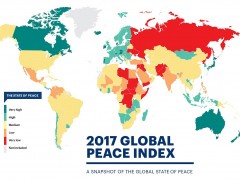News


by: Tan Sri Dzulkifli Abd Razak
THE Global Higher Education Forum (GHEF) was successfully launched for the sixth time last week, since it was initiated at Universiti Sains Malaysia 12 years ago.
This time it was co-hosted by the International Islamic University Malaysia and attended by more than 400 participants from 25 countries, making it the largest thus far. Two academic books were also launched. One is to celebrate Malaysia’s 61st independence by offering critical examination of the education system — past and present — for the future. It is authored by local and international experts providing comparative and contrasting views and critiques. It is hailed as the first of its kind to boldly do so in tandem with the spirit of Malaysia Baru.
The second book is equally significant, examining the academic contributions and roles on record thus far in meeting the community’s needs in line with the concept of Education for Sustainable Development (ESD). The concept that was introduced in 1987, through the United Nations’ initiative, has now more than 30 years of experience that the book tries to capture and share. Not only is it a testimony to how well ESD is being embraced, it also provides a framework of how ESD should be moulded for the future. This is done through another multi-authored initiative penned by experts from around the globe offering “real” experiences that are closely related to sustainable development.
For the first time, the concept of “sejahtera” (harmony) is academically documented in an international publication of the esteemed United Nations University in Tokyo. This marks the acceptance of the concept internationally in the attempt to articulate ESD from indigenous viewpoints. Thus enriching ESD further as an inclusive platform by making it more relevant to the broader global community in recognising that indigenous knowledge and wisdom supported sustainable ways of living centuries ago — before it became fashionable.
In a nutshell, sejahtera needs to be appropriately understood, contextualised and translated into reality, especially for Malaysians who have been verbalising it often enough as often heard in salam sejahtera — let alone the taglines of agencies and organisations. Yet deeper nuances are less felt all round.
Unlike “amok” that is (in)famous worldwide, sejahtera is only beginning to be felt globally of late, academically speaking. What is baffling, however, is that the word had been embedded in Falsafah Pendidikan Kebangsaan or the National Education Philosophy (FPK) some 30 years ago. But it failed to make it into the mainstream of the national education system — be it in schools, what more, universities. Its existence in FPK is as “old” as ESD, but the latter somehow is already a global point of convergence pervasive enough to capture our imagination worldwide in transforming education at all levels to nurture a sustainable future.
It is because of this I ventured to theme my keynote address as “Falsafah Pendidikan Kebangsaan: Paving the ways for Sustainable Development Goals” (SDGs). It is to underscore that FPK is not only relevant nationally (despite its dismal use and application), it is also globally aligned, not least if sejahtera that is embedded in FPK is given its rightful meaning and nuances. More significantly, it is well in sync with the overarching SDGs targets of the 5Ps — people, planet, prosperity, peace and partnership.
Each of them can be mapped to the values and virtues of sejahtera, both at the micro (individual) or even the macro (communal or cosmic) level, hence, amply making FPK the ideal launch pad for ESD within the SDGs framework.
This is the missing gap that would have otherwise propelled FPK into the arena 30 years ago; so, too, the United Nations Educational, Scientific and Cultural Organisation Four Pillars of Learning for the 21st century, 10 years later.
Indeed, FPK is 21st century, ahead of its time, and it is sad to note that we are searching to interpret what 21st century education is all about, when FPK has been staring at us for more than three decades now. I can only explain this observation by noting the famous Malay(sian) proverb: nyamuk di seberang laut nampak, gajah dihadapan mata tidak nampak (spotting the mosquito across the ocean, missing the elephant in front of you), but interpreted more positively! Yes, FPK has been the elephant in the room that we are too blind to see, let alone acknowledge, despite the growing number of academics and institutions of higher learning over the last 30 years.
It follows that we have been distracted by the irritating buzzing of the “nyamuk” that had diverted attention to side issues like “ranking” and “soaring upwards” sans FPK. In a nutshell, harsh as it is, we have not delivered on the education that we designed through the wisdom founded on FPK. Like it or not, we have “failed” as far as FPK is concerned.
Realising this, the rot must stop. The “elephant” in the room must be attended to; but not like the six blind (wo)men! It must be done as FPK dictates in its very first sentence drafted in 1988, namely: berterusan, menyeluruh and bersepadu (continuous, comprehensive and integrated). Aptly, today each is globally taken on board to mean the same, viz. “continuous-lifelong learning, holistic-lifewide learning, and integrated-lifeworth learning, for the 21st century!
Thanks to the FPK for those who are discerning enough. When it comes to education, it is never too late.
The writer is a Rector of the International Islamic University Malaysia, a fellow of the Centre of Policy Research and International Studies (CenPRIS) and the chairman of Universiti Sains Islam Malaysia's Board of Directors.
Read more: https://www.nst.com.my/opinion...








